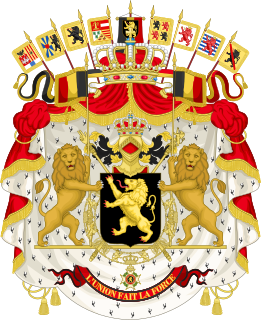
Naturalization is the legal act or process by which a non-citizen in a country may acquire citizenship or nationality of that country. It may be done automatically by a statute, i.e., without any effort on the part of the individual, or it may involve an application or a motion and approval by legal authorities. The rules of naturalization vary from country to country but typically include a promise to obeying and upholding that country's laws, taking and subscribing to the oath of allegiance, and may specify other requirements such as a minimum legal residency and adequate knowledge of the national dominant language or culture. To counter multiple citizenship, most countries require that applicants for naturalization renounce any other citizenship that they currently hold, but whether this renunciation actually causes loss of original citizenship, as seen by the host country and by the original country, will depend on the laws of the countries involved.

Jus soli, meaning "right of the soil", commonly referred to as birthright citizenship in the United States, is the right of anyone born in the territory of a state to nationality or citizenship.
Jus sanguinis is a principle of nationality law by which citizenship is not determined by place of birth but by having one or both parents who are citizens of the state. Children at birth may automatically be citizens if their parents have state citizenship or national identities of ethnic, cultural, or other origins. Citizenship can also apply to children whose parents belong to a diaspora and were not themselves citizens of the state conferring citizenship. This principle contrasts with jus soli.

Canadian nationality law is promulgated by the Citizenship Act since 1977. The Act determines who is, or is eligible to be, a citizen of Canada. The Act replaced the previous Canadian Citizenship Act in 1977 and has gone through four significant amendments, in 2007, 2009, 2015 and 2017.

The United States nationality law is a uniform rule of naturalization of the United States set out in the Immigration and Nationality Act of 1952, enacted under the power of Article I, section 8, clause 4 of the United States Constitution, which reads: Congress shall have Power - "To establish a uniform Rule of Naturalization..." The 1952 Act sets forth the legal requirements for the acquisition of, and divestiture from, American nationality. The requirements have become more explicit since the ratification of the Fourteenth Amendment to the Constitution, with the most recent changes to the law having been made by Congress in 2001.

Swiss citizenship is the status of being a citizen of Switzerland and it can be obtained by birth or naturalisation.
Nationality law is the law in each country and in each jurisdiction within each country which defines the rights and obligations of citizenship within the jurisdiction and the manner in which citizenship is acquired as well as how citizenship may be lost. A person who is not a citizen of the country is generally regarded as a foreigner, also referred to as an alien. A person who has no recognised nationality or citizenship is regarded as stateless.

Australian nationality law determines who is and who is not an Australian citizen. The status of Australian nationality or Australian citizenship was created by the Nationality and Citizenship Act 1948, which came into force on 26 January 1949. The 1948 Act was amended many times, notably in 1973, 1984, 1986 and 2002. It has been replaced by the Australian Citizenship Act 2007, commencing on 1 July 2007.

German nationality law is the law governing the acquisition, transmission and loss of German citizenship. The law is based on a mixture of the principles of jus sanguinis and jus soli. In other words, one usually acquires German citizenship if a parent is a German citizen, irrespective of place of birth, or by birth in Germany to parents with foreign nationality if certain requirements are fulfilled. Naturalisation is also possible for foreign nationals after six to eight years of legal residence in Germany.

Belgian citizenship is based on a mixture of the principles of jus sanguinis and jus soli. In other words, both place of birth and Belgian parentage are relevant for determining whether a person is a Belgian citizen. It is regulated by the Code of Belgian Nationality.

French nationality law is historically based on the principles of jus soli, according to Ernest Renan's definition, in opposition to the German definition of nationality, jus sanguinis, formalised by Johann Gottlieb Fichte.

Nationality law in the Republic of Austria is based on the principle of jus sanguinis. In other words, one usually acquires Austrian citizenship if a parent is Austrian, irrespective of place of birth.

Norwegian nationality law is based on the principle of jus sanguinis. In general, Norwegian citizenship is conferred by birth to a Norwegian parent, or by naturalisation in Norway.

Brazilian nationality law is based on both the principles of jus soli and of jus sanguinis. As a general rule, any person born in Brazil acquires Brazilian nationality at birth, irrespective of status of parents. Nationality law is regulated by Article 12 of the Brazilian Federal Constitution.

Turkish nationality law is based primarily on the principle of jus sanguinis. Children who are born to a Turkish mother or a Turkish father are Turkish citizens from birth. The intention to renounce Turkish citizenship is submitted in Turkey by a petition to the highest administrative official in the concerned person's place of residence, and when overseas to the Turkish consulate. Documents processed by these authorities are forwarded to the Ministry of Interior for appropriate action.

Luxembourgish nationality law is ruled by the Constitution of Luxembourg. The Grand Duchy of Luxembourg is a member state of the European Union and, therefore, its citizens are also EU citizens.

British nationality law is the law of the United Kingdom which concerns citizenship and other categories of British nationality. The law is complex due to the United Kingdom's historical status as an imperial power.

Burundian nationality law is the body of law concerning who is a citizen of Burundi. The basis of Burundian nationality law is Loi no. 1-013 du 18 juillet 2000 portant reforme du Code de la nationalité.

Angolan nationality law is the body of law concerning who is a citizen of Angola. The basis of Angolan nationality law is Lei no.13/91 da nacionalidade, de 11 de maio, Lei no.1/05 da nacionalidade, de 1 de julho, and Decreto no.31/07 dos registos de nascimentos, de 14 de maio.

Albanian nationality law is based on a mixture of the principles of Jus sanguinis and Jus soli. In other words, both place of birth and Albanian parentage are relevant for determining whether a person is an Albanian citizen. It is regulated by the "Law on Albanian Citizenship". In some circumstances citizenship is granted to children born in Albania to non-Albanian parents. This is not the case where parents are temporary or short-term visitors. As suggested by the UN and Council of Europe, all efforts are made in order to avoid statelessness.



















